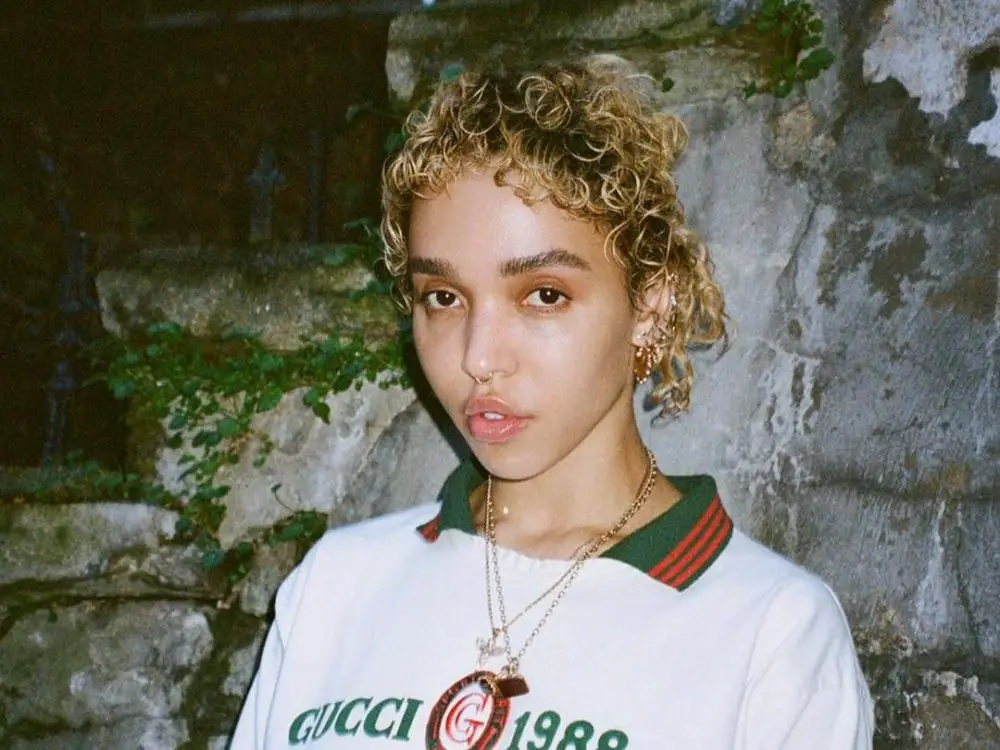Since her big break into the music industry in 2012 with her music debut “EP1,” FKA twigs, born Tahliah Debrett Barnett, has remained in a lane of her own. Self-described as not being restricted to any single musical genre, her music is a hypnotizing combination of a variety of influences from the avant-garde to R&B, electronic to opera. Through her openness to a wide variety of influences, she manages to rise above them to create something truly her own. She is an artist willing to master every aspect of her craft while striving to put out only the highest quality of work, and has learned how to use her vulnerability, intellect and pain to create deeply authentic sounds that speak to only the truest version of herself.
Before making music, FKA twigs had a career as a professional dancer. She gave herself the stage name “twigs” due to the way her bones cracked while dancing. Having moved to London at the age of 17 to attend the BRIT school and pursue a livelihood in dance, she soon began appearing as a backup dancer in music videos for the likes of Ed Sheeran, Kylie Minogue and Jessie J.
However, during this time she realized that it wasn’t dancing she loved, but music. She began to teach herself how to produce music and began reaching out to local producers in London. For her debut EP, she made the decision to do the majority of the production and songwriting herself, even though she had little prior experience. “I realized that I had to do it myself,” she told Radio 1, “because … I wanted to make my own sound … ultimately for the record I just knew that it was a challenge and that I had to do a lot of it by myself.”
To this day, she maintains creative control over the majority of her songwriting, imagery and performances. As an artist who loves adding new and challenging skills to her repertoire, she spent years studying wushu — a form of Chinese martial arts with roots dating back to the Bronze Age — which she can be seen performing in her music video for the track “Sad Day.” She produced, sang and wrote the majority of her 2014 album, “LP1,” an ethereal record that stood out as a unique piece of artistic expression in a congested marketplace. In it, FKA twigs’ voice hovers airily over dark, mosaic beats — a compelling contrast between control and vulnerability that would characterize all her work to come.
FKA twigs’ second full-length album, “Magdalene” (2019), was inspired by the biblical figure of Mary Magdalene, an important disciple of Jesus often overlooked because of her portrayal as a sinner by leaders of the church. Because of FKA twigs’ similar experiences with the media — especially during her relationship with actor Robert Pattinson, when she was thrust into the mainstream spotlight and suffered horrific racial abuse from his fans — she is able to infuse into the album a feeling of helplessness inspired by the plight of Mary Magdalene. She is able to understand what it means to be diminished by history into a shallow image used to enhance a man’s greatness.
“I used to laugh to myself about how, as a woman, your story is often attached to the narrative of a man,” she told Frankie Dunn of Vice in an interview about “Magdalene.” “No matter what you’re doing or how great your work is, sometimes it’s as though you have to be attached to a man to be validated. I’d felt like that at times.”
While women are often portrayed as either strong or fragile, FKA twigs expresses that they can be both of these at once, and furthermore, it is when they harmoniously coexist that they are at their most powerful. The interplay between strength and vulnerability in “Magdalene” is a compelling and truthful tension that fuels the album.
The FKA twigs and Shia LaBeouf Lawsuit
In December 2020, FKA twigs filed a lawsuit against ex-boyfriend Shia LaBeouf for sexual battery and abuse during their relationship. She met LaBeouf on the set of his film “Honey Boy,” which he wrote as a form of therapy while in rehab. “What I went through with Shia was the worst thing I’ve ever been through in the whole of my life,” she told The New York Times. “I don’t think people would ever think that it would happen to me. But I think that’s the thing. It can happen to anybody.” Singer Sia, who previously dated LaBeouf, spoke out in support of FKA twigs, claiming that she too had been “emotionally hurt” by LaBeouf. In response to these allegations, LaBeouf told The New York Times: “I have been abusive to myself and everyone around me for years.”
In a statement to E! News, FKA twigs’ attorney said, “We tried to resolve this matter privately on the condition that Mr. LaBeouf agree to receive meaningful and consistent psychological treatment. Since he was unwilling to agree to get appropriate help, Ms. Barnett filed this suit to prevent others from unknowingly suffering similar abuse by him.”
In the midst of her ongoing lawsuit, FKA twigs released her first full-length single since 2019, titled “Don’t Judge Me,” with UK drill rapper Headie One and English producer Fred again. In the music video for the track, which she co-directed, Black models and dancers encircle Kara Walker’s Fons Americanus sculpture — a fountain inspired by the Victoria Memorial in front of Buckingham Palace. The fountain captures Black people’s horrific experiences during the transatlantic slave trade and highlights the suffering borne by Black people from around the world.
“So proud to release ‘don’t judge me’ into the world. this project is very personal and special to me,” FKA twigs wrote on Instagram. “It was an honour to shoot with kara walkers fountain exploring the interconnection of black history between africa, america and europe. thank you to everyone for making don’t judge me come to life.”
Headie One’s bars about English racism stand at the core of the song: “We can walk free, but are we really walkin’ free here?” he raps. “How can this be home when I feel I wanna flee here?”
“Don’t Judge Me” is fueled by a spirit of revolt against oppression. In a world where more than 1 in 4 women has undergone violence at the hands of their partner and racial injustice still negatively impacts millions of lives, “Don’t Judge Me” seems to be a plea for humanity from a lover addressed to an inhumane system that refuses to listen.
Though the issues that the song addresses and the problems that FKA twigs hopes to bring awareness to won’t be solved overnight, it is through her art that some of the power she feels has been stolen from her can begin to be regained. As a versatile and powerful artist as well as a vulnerable woman, FKA twigs turns her pain into meaning on tracks like “Don’t Judge Me” and refuses to let her oppressor get the better of her and others like her.
In October 2020, FKA twigs revealed during an interview for the Grammy Museum’s “Programs at Home” series that she had completed a new album from her home during quarantine. She named Spanish producer El Guincho and songwriters Billy Walsh and Ali Tamposi as some of her collaborators on the unnamed album. “I’ve got more collaborations and features on this album than I’ve ever had before,” she said. “The majority of the people I’ve never met in real life. We spent a lot of time with each other over FaceTime. It’s a real product of 2020.”

















